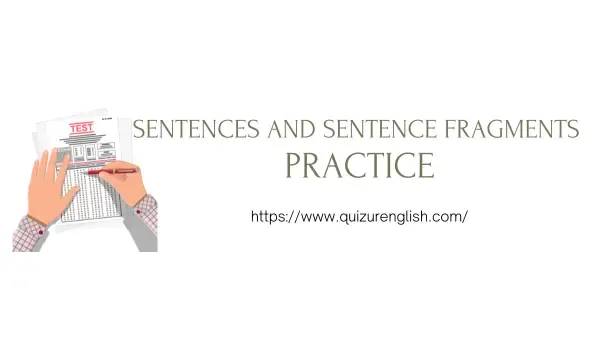Sentences and Sentence Fragments Practice
Knowing the difference between a complete sentence and a sentence fragment is an important part of writing clearly and effectively. Sentences express a complete thought and contain a subject and a predicate, while fragments are incomplete pieces that leave the reader hanging. In this article, we will provide practice identifying and correcting sentence fragments to help strengthen your writing skills. Through a series of clear examples and exercises, you will learn how to determine if a group of words is an acceptable sentence or just a fragment that needs revision. With focused practice, you can train yourself to write in complete sentences that clearly communicate your ideas from start to finish. The exercises in this article will cover common types of fragments and how to fix them by adding the missing elements needed to make them complete. Learning this crucial skill will allow you to write more polished and professional pieces, demonstrating your command of basic syntax.
Remember!
A sentence expresses a complete thought and requires a subject and predicate. For example,
- Jane went to the store.
A fragment is a group of words that does not form a complete sentence. Fragments lack a subject, predicate, or both. For example,
- Walking down the street. (no subject)
- The tall man from the wrestling team. (no predicate)
Common Types of Fragments:
- Missing subject: Going to the movies tonight.
- Missing predicate: The imposed curfew.
- Subordinate clause: Although he loved sweets.
- Appositive phrase: The principal, Mr. Jones.
To fix a fragment, add the missing subject or predicate:
- Original: Told his friend the good news. (no subject)
- Revision: He told his friend the good news.
Practice identifying and correcting fragments will help you master sentence completeness.
Sentences and Sentence Fragments Practice
Write each group of words. Write sentence or fragment next to each item. Then rewrite each fragment to make a complete sentence.
1/5
My father looked at the house plans.
Explanation: sentence
2/5
The front windows.
Explanation: fragment; The front windows looked too small.
3/5
Added a staircase.
Explanation: fragment; My father added a staircase in the back.
4/5
We decided to paint it blue.
Explanation: sentence
5/5
Changed his mind.
Explanation: fragment; My father changed his mind.
References
- Strunk and White's "The Elements of Style" and Kolln's "Rhetorical Grammar."

